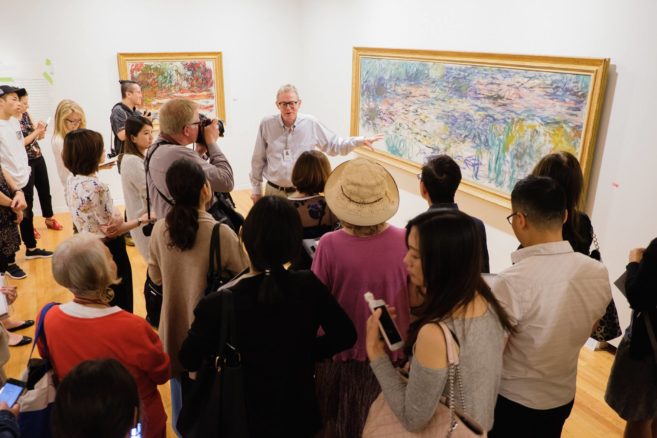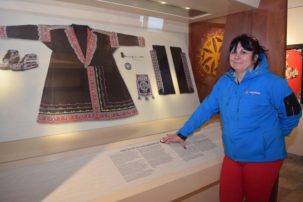Just over a week ago, Inuit artist Billy Gauthier was celebrating his culture, and showing his art, at iNuit Blanche, the world’s first all-night, all-circumpolar arts festival in St. John’s.
Now, this award-winning artist is on a hunger strike—one Gauthier promises he will continue until he is sure that a massive hydro project near his home in Labrador will be changed in order to prevent the poisoning of his people’s food sources.
“As an Inuit artist, the land is where I get my inspiration,” Gauthier said in a video post to Facebook on Saturday, roughly 49 hours after he first began his hunger strike.
“My culture is me. Take away my culture, and you take me away. Take away my culture, I am nothing.”
In 2010, Gauthier was named Emerging Artist of the Year by the Newfoundland and Labrador Arts Council. In 2011, his first solo exhibition at Spirit Wrestler Gallery in Vancouver, titled “Visions of Labrador,” sold out in under 20 minutes.
Among the collectors of Gauthier’s work are former French president Jacques Chirac and the University of British Columbia Museum of Anthropology.
And though Gauthier’s work has travelled far, it continues to originate in, as the iNuit Blanche website puts it, “personal memories, Inuit cosmologies, and mutual respect for the land and its natural resources.”
Vital to those memories and cosmologies are Inuit practices of hunting and fishing.
The Aboriginal Peoples Television Network has reported that, according to Harvard University research, flooding of a large portion of land for the Muskrat Falls hydro project in Labrador will lead to methylmercury in the food chain—unless all the vegetation in the area to be flooded is removed before flooding.
Removal of that flood-area vegetation—and prevention of future methylmercury poisoning—is Gauthier’s ultimate goal. Severe methyl mercury poisoning, seen due to industrial pollution in Minimata, Japan, in the 1950s, can lead to birth defects as well as numbness, muscle weakness, and damage to hearing and speech. Mercury pollution has also been an issue at Grassy Narrows First Nation in Ontario.
“Anybody that knows me that my favorite time of the year is the spring seal hunt,” Gauthier says on the APTN website in regards to his concern about methyl mercury entering the local food chain. “Without that animal, I wouldn’t be here. My ancestors, none of them, could have survived without it.”
Flooding of the uncleared Muskrat Falls land was due to begin as early as October 15.
Gauthier has spoken to the provincial environment minister, as well as a VP of Nalcor Energy (the company behind the Muskrat Falls development), but could not get the guarantee he wanted that all the vegetation would be cleared before flooding.
So he continues his strike, drinking only water. And he has also been posting updates about the strike and related protests on his Facebook page.
“I hope I don’t have to go all the way to do it, but I will,” Gauthier told the CBC.
A wider movement called Make Muskrat Right continues to protest at the Muskrat Falls site. Nine such protesters were released from custody today.
“I’m here today to support everybody in the fight to make Muskrat right,” protestor Charlotte Wolfrey of Rigolet, Labrador, told the Telegram on the weekend. “We got Make Muskrat Right — Rigolet Style committee in Rigolet and we want the land fully cleared and we hope this last ditch can save Billy Gauthier and we can save the Inuit from being poisoned by the methylmercury.”

 Inuit artist Billy Gauthier is concerned about the future of his home and traditions in Labrador. So he is on a hunger strike. Photo: Facebook.
Inuit artist Billy Gauthier is concerned about the future of his home and traditions in Labrador. So he is on a hunger strike. Photo: Facebook.







